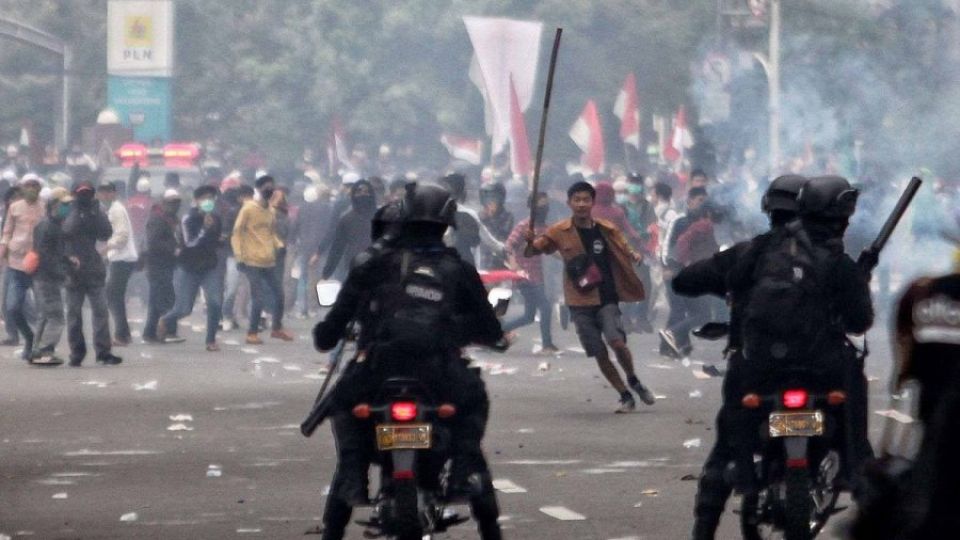April 27, 2023
JAKARTA – Indonesia has dropped in a ranking of countries as places to conduct business, scoring poorly in the assessments of political effectiveness and infrastructure, which suggests that structural reforms pushed by the government have had little effect so far in improving the business environment.
Released on April 13, the latest edition of the study conducted regularly by the Economist Intelligence Unit (EIU), showed that Indonesia’s global ranking slipped by three places to the 58th spot out of 82 countries assessed.
Indonesia ranks far below regional peers like Singapore, which sits at the very top, as well as Malaysia in 26th place, Thailand in 33rd and Vietnam in 45th.
“[Indonesia] scores particularly poorly in political effectiveness and infrastructure. Indonesia’s political environment is problematic,” EIU country forecast manager Prianthi Roy told The Jakarta Post on April 13.
Roy said that President Joko “Jokowi” Widodo would “provide a steady hand” until his second term ends in 2024, but his efforts to push for political reforms would be hamstrung by an “unwieldy coalition” with highly diverse views.
This situation, said Roy, would be exacerbated after Jokowi leaves office, given that there was no presidential candidate in sight who was as popular across political parties and the public as the incumbent.
“Some senior politicians would prefer a return to a patronage-based system, and others seek to restrict social freedoms by promoting a stricter form of Islam,” said Roy.
He noted that Indonesia’s infrastructure would improve markedly from 2023 to 2027, but said it still lagged far behind the global average, as its archipelagic geography and limited fiscal resources posed challenges to the country’s infrastructure development.
A conducive business environment is deemed vital for countries in Asia as they vie with one another to reel in foreign investment. That competition has been amplified lately by multilateral corporations pursuing what has become known as the China Plus 1 strategy, wherein they opt to diversify their investments within Asia to at least one more location aside from China.
The wide-scale lockdown of China’s economy in response to the coronavirus pandemic, which created supply chain bottlenecks that hampered manufacturing and trade around the world, gave fresh impetus to this strategy. In addition, China Plus 1 is seen as a way for firms to mitigate risks stemming from growing tensions between China and the United States.
In contrast to Indonesia, Vietnam’s ranking in the study improved by 12 places, while Thailand and India climbed up 10 and six steps, respectively.
Both Vietnam and Thailand have favorable policies for foreign investors, according to the EIU analysis, on top of an improving economic outlook for Vietnam and increased economic stability for Thailand.
“India has historically struggled to attract manufacturing investment but is now well placed to benefit from similar trends. A strong, stable economy and access to a large labour supply form the basis of its appeal to investors,” reads the analysis in the report.
“Policy reforms are making it easier to do business in India, and we expect major improvements in areas such as infrastructure, taxation and trade regulation, boosting investment,” it adds.
Speaking to the Post, Roy acknowledged that structural reforms Indonesia has undertaken had contributed to the country’s improved outlook.
The reforms include a lowering of businesses tax rates, enhancing tax compliance, increasing labor market flexibility and improving infrastructure quality through public investment and reduced bureaucratic barriers.
One of the widest reform projects in the country is based on the Job Creation Law passed in 2020 and implemented through many derivative regulations. Yet that was insufficient to keep the country from slipping back in the ranking.
Indonesian Chamber of Commerce and Industry chairman Arsjad Rasjid told the Post on April 19 that time was needed for the impact of the omnibus law to take effect.
“While it’s true there are many more things that need to be fixed, that doesn’t mean Indonesia is not improving,” Arsjad insisted, adding: “I am optimistic that we can improve our ease of doing business”.
Asked about domestic politics, Arsjad said Indonesia was relatively stable, despite the possibility that the 2024 general election might affect business conditions to a certain degree.
“I’m sure the government is able to maintain the integrity and security of the celebration of democracy,” said Arsjad.
Concurring with him, Andry Satrio Nugroho, who heads the Center of Industry, Trade and Investment at the Institute for Development of Economics and Finance (Indef), said that conditions in Indonesia had always remained stable during recent general elections.
“In principle, investors have always played the wait-and-see card [during election years], but it will never reach a chaotic level,” said Andry.
Regarding the US-Chinese relationship, Andry said the geopolitical tension would undoubtedly affect Indonesia’s positioning, given that either of the superpowers may push Indonesia to pick a side, even though Indonesia’s constitution sets in stone the principle that Indonesia never takes sides in such international rivalries.
“In my opinion, we only have to focus on business regulations, on how to maintain a good business climate,” Andry said.


